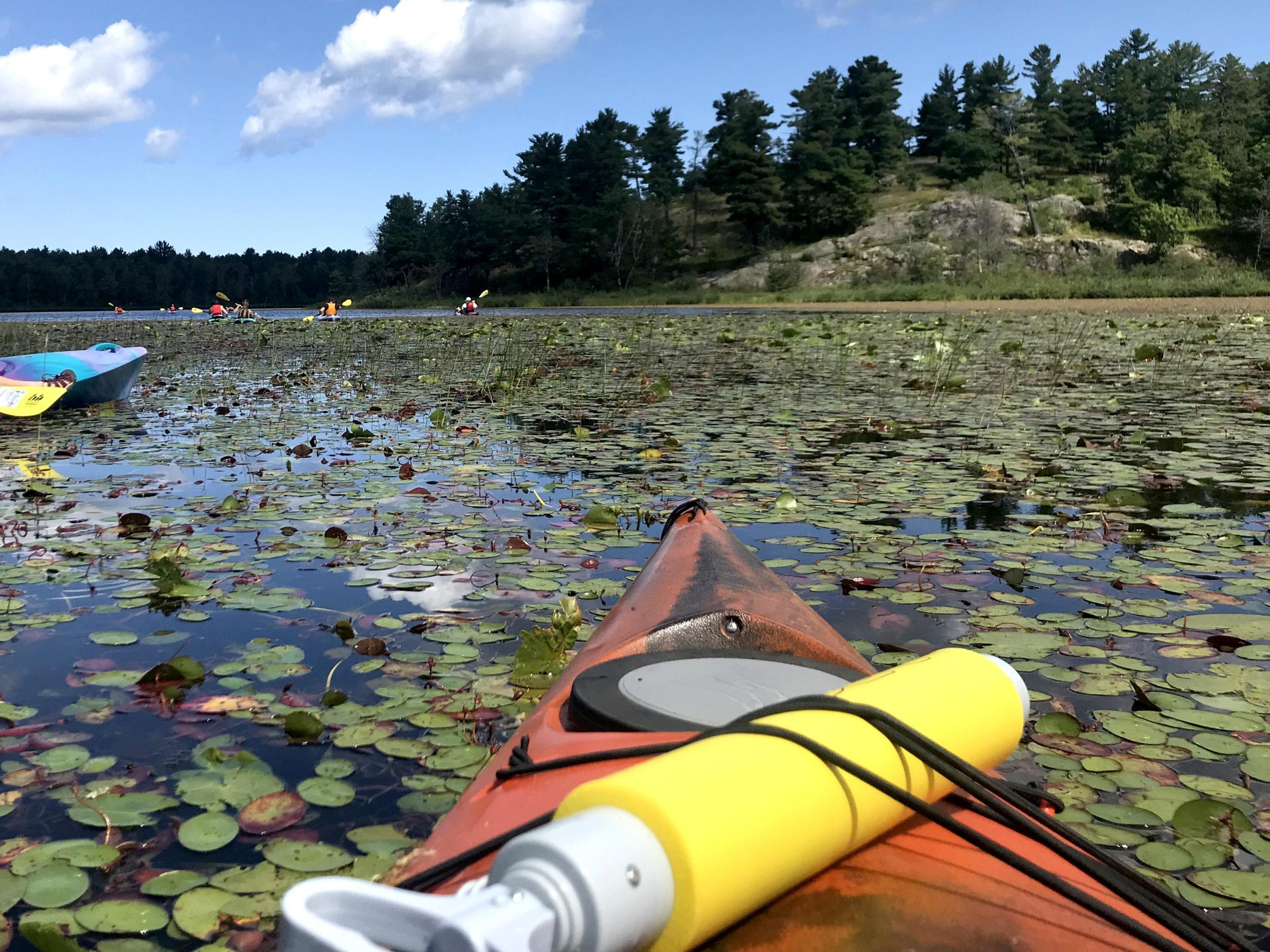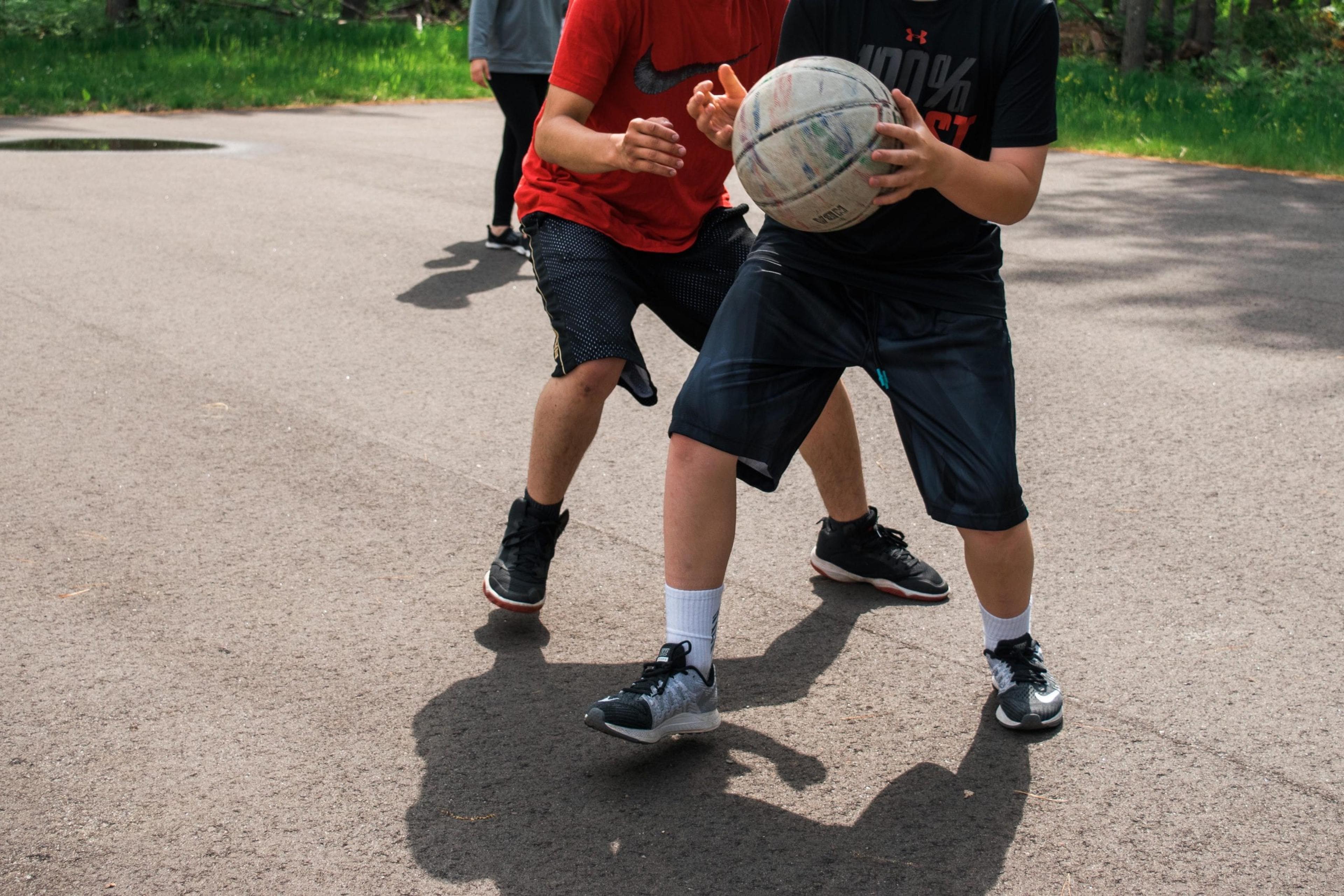Active Recovery: Grant Funding Expands Recreational Opportunities at Teen Recovery Center
Julie Bitely
| 4 min read

Whether it’s mountain biking and kayaking in the summer or snowshoeing and ice skating in the winter, outdoor physical activity is all about being in the moment, leaving little time for worry. For adolescents and teens staying at the Great Lakes Recovery Centers’(GLRC) Adolescent Services Center in Negaunee, getting active is one more tool available to them as they work to overcome substance use disorder. Last year, the center served more than 50 clients, about half traveling from downstate Michigan to receive treatment in an idyllic Upper Peninsula setting. The average length of stay was about 60 days. In 2018, the Blue Cross Blue Shield of Michigan Foundation provided grant funding to GLRC to expand their outdoor offerings for teens in residential treatment. The center purchased bikes, skis, snowshoes, kayaks, yoga equipment and accessories such as helmets and boots. They trained staff to be lifeguards, in order to make kayaking possible, and used the funding to pay for offsite activities such as rock climbing, high ropes courses and Pilates. “It has totally changed the landscape for what we can do for recreation,” explained Derrick DePetro, an addiction and substance abuse counselor and program director at the center.
Teens Report Positive Benefits of Activity
Physical exercise has been shown to increase the abstinence rate as well as ease withdrawal symptoms and reduce anxiety and depression in relation to SUD. There’s also support for the idea that replacing substance using behaviors with alternative, healthy and positive behaviors can help those with SUD remain substance free. Teens were surveyed before and after activities. Initial results indicated that their desire to use substances dropped, and they reported that feelings of depression and anxiety were lowered. For many, the additional recreational opportunities led to significant changes in their belief system about physical activity, with an increased number of kids reporting agreement with the idea that being physically active can help reduce their desire to use drugs. DePetro said teens have really enjoyed the equipment, especially taking to the mountain bikes and kayaks this summer. He said in addition to helping them find new ways to stay physically healthy, the enhanced recreation opportunities are helping them identify activities they might be able to turn to after they leave treatment. He said one former client fell so in love with ice skating during their time at the center that they started to pursue it once they were back home.
Expanding Coping Skills Through Recreation
It’s stories like those that give DePetro and other staff at the center hope for their charges. Recovery from SUD is often filled with stops and starts. Many face tough situations at home while others might be dealing with underlying mental health issues such as depression or anxiety.

“Using provides an escape from reality,” DePetro said. “Whatever that issue is, it provides that.” While they are at the center, teens work with counselors to develop an action plan for when they get home. It might include changing their circle of friends or avoiding certain situations that tend to trigger a desire to use. Identifying physical activities they can turn to and take part in when they go home is another aspect of planning. DePetro thinks of it as planting seeds and creating happy memories. He wants teens who’ve left the center to think back to their time there and remember the freedom of riding the nearby trails on a bike. He wants them to remember the fun and social interaction that took place – with no substances – paddling and splashing along with newfound friends in kayaks. “Those memories are there and the more memories we can create with them allows them to flash right back to the memory of a time that provided happiness,” he said. Grants provided by the Foundation don’t always reflect services covered by Blue Cross Blue Shield of Michigan or Blue Care Network. Recreation therapy is not currently covered through Blue Cross or Blue Care Network health plans. Related:
- Understanding Behavioral Health Benefits
- Talk to Your Kids About the Dangers of Prescription Drugs
- Online Support for People with Substance Use Disorders
Photos courtesy of Great Lakes Recovery Center





